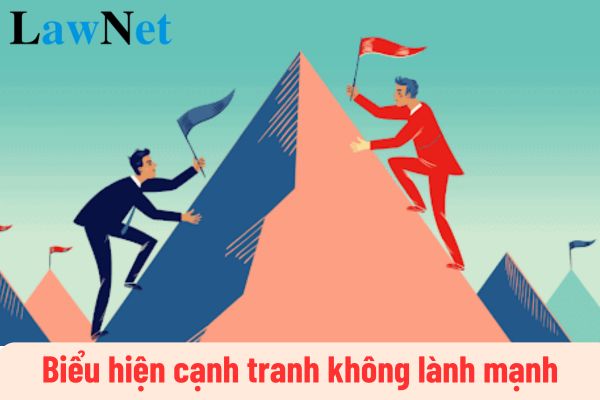Vietnam: What are the manifestations of unfair competition? Are 11th-grade students required to master the manifestations of unfair competition?
What are the manifestations of unfair competition in Vietnam?
Unfair competition is a concerning issue in business, affecting both enterprises and consumers.
Manifestations of unfair competition will be taught and are a required learning outcome in the 11th-grade Civic education curriculum.
|
What are the manifestations of unfair competition? 1. Misleading acts about products and services: |
*Note: Information on the manifestations of unfair competition is for reference only./.

What are the manifestations of unfair competition in Vietnam? Are 11th-grade students in Vietnam required to master the manifestations of unfair competition? (Image from the Internet)
Are 11th-grade students in Vietnam required to master the manifestations of unfair competition?
Under Section 5 of the General Education Program for Civic Education issued together with Circular 32/2018/TT-BGDDT, the required learning outcomes in the 11th-grade civic education subject are as follows:
Required learning outcomes
- Competition
+ Define competition.
+ Explain the reasons leading to competition.
+ Analyze the role of competition in the economy.
+ Criticize the manifestations of unfair competition*.*
- Supply, demand, and the relationship of supply and demand.
+ Define supply and the factors affecting supply.
+ Define demand and the factors affecting demand.
+ Analyze the relationship and role of supply-demand relations in the economy.
+ Analyze supply-demand relations in specific business activities.
According to the regulations in the 11th-grade Civic education curriculum, students have studied the reasons leading to competition, analyzed the role of competition in the economy, and criticized the manifestations of unfair competition.
Thus, 11th-grade students must master the manifestations of unfair competition in order to criticize those manifestations.
What are the regulations on assessment of educational results of 11th-grade Civic Education in Vietnam?
According to Section 6 of the General Education Program for Civic Education issued together with Circular 32/2018/TT-BGDDT, the assessment of educational results of 11th-grade Civic Education in Vietnam is regulated as follows:
- Combine assessment through learning tasks (tests in the form of multiple-choice, oral, or essay, practical exercises, essays, presentations, research exercises, projects,...) with assessment through the observation of students' attitudes and behaviors during participation in classroom activities, group activities, collective or community activities, and in daily communication.
+ Focus on using situational exercises based on linking the lesson's knowledge with real life, especially situations, events, issues, and phenomena of real-life close to students. Enhance open questions linked with practicality in assessment exercises to allow students to demonstrate qualities and competencies.
+ Conduct assessment by observing students' attitudes and behaviors during participation in study, school, home, and community activities based on assessments from teachers, students, families, or social organizations.
- Combine teacher's assessments with self-assessment and peer assessment by students, parental assessments, and community assessments, in which teacher assessment is the most important; emphasizing the assessment of students' progress.
- The assessment results after each semester and the whole school year for each student are a synthesis of process assessment and summary assessment guided by the Ministry of Education and Training.

